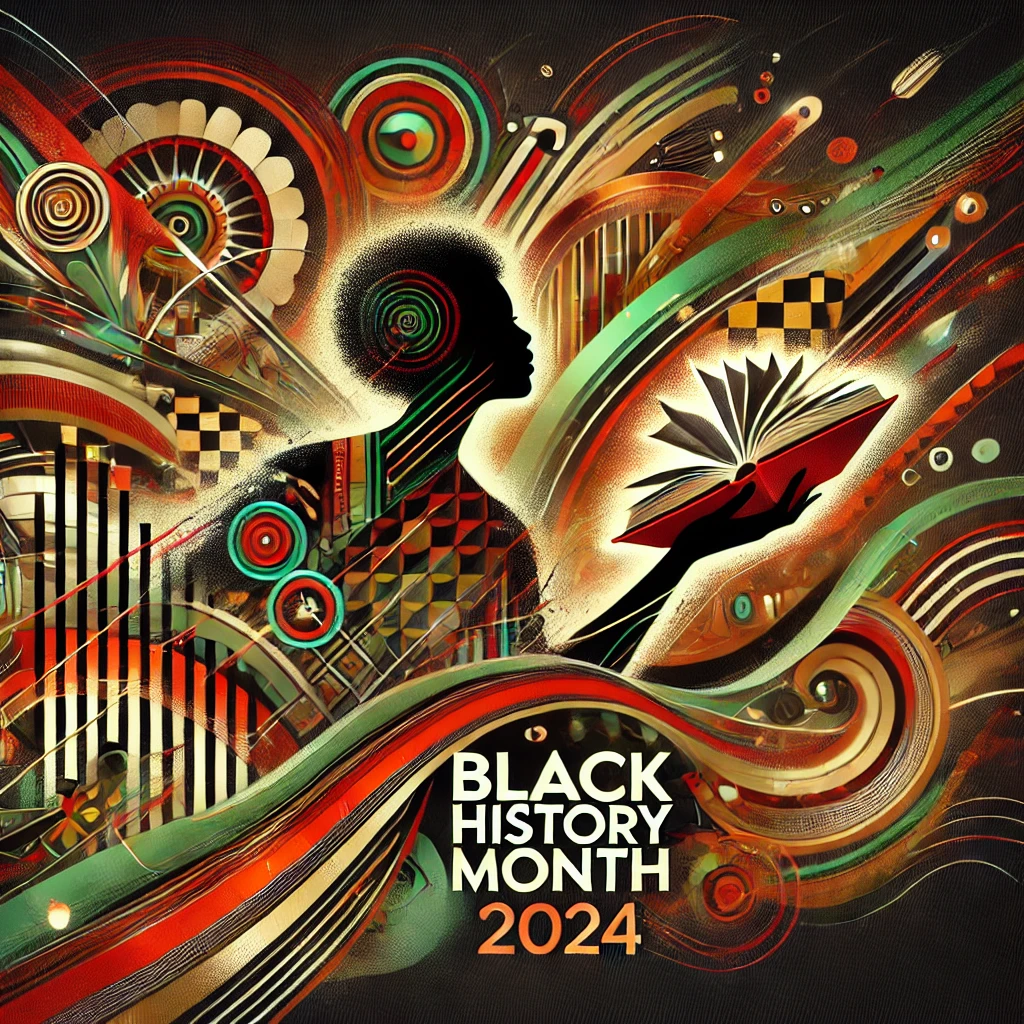Table of Contents
Introduction to Black History Month
Black History Month stands as a significant period of recognition and celebration, observed annually to honor the contributions and achievements of Black individuals throughout history. Originating in the United States, this commemorative month traces its roots back to 1926 when historian Carter G. Woodson and the Association for the Study of Negro Life and History declared the second week of February as “Negro History Week.” This week was chosen to coincide with the birthdays of both Abraham Lincoln and Frederick Douglass, two figures pivotal to Black American history.
Over time, the observance expanded, leading to the establishment of Black History Month in 1976. This was a momentous shift that allowed for a more extended period of reflection and education on the pivotal roles Black individuals have played in shaping society. In the United States and Canada, Black History Month is celebrated in February, while the United Kingdom, Ireland, and the Netherlands observe it in October. This divergence in timing allows for a more global appreciation and understanding of Black history and culture.
Black History Month is not only a time for acknowledging the struggles faced by Black individuals but also a celebration of their remarkable achievements. The month serves to educate individuals across all communities about the rich history and notable accomplishments of Black people, covering a myriad of fields such as science, politics, the arts, and social justice. It underscores the importance of recognizing the profound influence of Black figures who have often been overlooked in traditional historical narratives.
Through various events, educational programs, and community activities, Black History Month fosters a deeper understanding and appreciation of Black heritage and culture. It also serves as an inspiration for future generations, encouraging them to continue striving for equality and justice, echoing the achievements and resilience of those who came before them.
Historical Milestones and Key Figures
Black History Month is an opportune time to reflect on the significant milestones and the influential figures who have shaped history and continue to inspire future generations. Among these pivotal moments, the abolition of slavery stands as a cornerstone. The Emancipation Proclamation, issued by President Abraham Lincoln in 1863, and the subsequent ratification of the 13th Amendment in 1865, legally ended the institution of slavery in the United States. These events heralded a new era of freedom but also uncovered the long, arduous journey toward true equality.
The Civil Rights Movement of the 1950s and 1960s marked another watershed moment. Spearheaded by reverent leaders like Dr. Martin Luther King Jr., whose advocacy for nonviolent resistance and his iconic “I Have a Dream” speech galvanized millions, the movement sought to dismantle systemic discrimination and secure legal recognition of African Americans’ rights. The Civil Rights Act of 1964 and the Voting Rights Act of 1965 were monumental legislative achievements that emerged from this period, fostering greater inclusivity and justice.
Individual figures have left indelible marks on history, inspiring change and altering the societal landscape. Harriet Tubman, known for her daring efforts in leading enslaved people to freedom through the Underground Railroad, exemplifies courage and determination. Rosa Parks, whose refusal to surrender her bus seat catalyzed the Montgomery Bus Boycott, became an emblem of resistance against racial segregation. Frederick Douglass, a former enslaved person who became a formidable orator and abolitionist, effectively used his voice and writings to advocate for the rights of African Americans and women.
These individuals, along with many others, have contributed significantly to the ongoing fight for justice and equality. Their stories serve as poignant reminders of the past struggles and as beacons of hope for the future. Celebrating Black History Month not only honors their legacy but also inspires continued progress against racial injustice and inequality.
Cultural Contributions in Arts and Literature
Black History Month serves as an opportune moment to recognize and celebrate the immense cultural contributions of Black individuals in the realms of arts and literature. Their profound impact has reverberated throughout history, leaving an indelible mark on our collective consciousness.
The literary world owes much to iconic figures such as Langston Hughes, whose poignant poetry and prose captured the struggles and hopes of the African American experience. Hughes, a central figure in the Harlem Renaissance, penned works that still resonate deeply today, his voice becoming synonymous with a burgeoning cultural pride.
Following closely in his footsteps, Maya Angelou’s soul-stirring memoirs and lyrical poetry have inspired generations. Angelou’s seminal work, “I Know Why the Caged Bird Sings,” not only chronicles her personal journey but also provides insight into the broader societal issues of race and identity. Both authors are pillars in a legacy that continues to inspire contemporary writers and thinkers.
James Baldwin, another monumental figure, used his novels, essays, and plays to confront and dissect the harrowing realities of race and sexual orientation in America. Baldwin’s unapologetic exploration of these themes in works like “Go Tell It on the Mountain” and “The Fire Next Time” challenged societal norms and paved the way for honest discourse on race relations.
Toni Morrison’s contributions cannot be overlooked. As the first African American woman to win the Nobel Prize in Literature, her powerful storytelling in novels such as “Beloved” and “Song of Solomon” delves into the complexities of Black identity and heritage, making her an indefatigable voice of cultural preservation and innovation.
In the realm of music, figures like Duke Ellington and Ella Fitzgerald have elevated the art form to new heights. Ellington’s innovative compositions and performances left an indelible imprint on jazz, while Fitzgerald’s impeccable vocal ability and emotive interpretation of song became a gold standard for musicians worldwide.
Their collective creativity has not only enriched the cultural landscapes across the globe but has also fostered a deeper understanding of the Black experience. Through their enduring legacies, these artists and writers continue to inspire and provoke meaningful cultural reflection.
Science, Innovation, and Entrepreneurship
Black History Month serves as a crucial period to honor the remarkable contributions of Black individuals to science, technology, and business. Their indelible mark on these fields is both historical and contemporary, showcasing a legacy of innovation and groundbreaking achievements. George Washington Carver, for instance, revolutionized agricultural science with his pioneering work in crop rotation and alternative farming methods. His advancements significantly benefited the southern United States’ economy by introducing new uses for crops like peanuts and sweet potatoes.
The realm of space exploration also owes much to the trailblazing spirit of Mae Jemison, the first African-American woman to travel into space. As a NASA astronaut, Dr. Jemison’s journey symbolizes the strides made within the intersection of race and scientific curiosity. Her influence extends beyond her space missions into STEM advocacy, encouraging young Black individuals to pursue careers in science and technology.
Katherine Johnson’s extraordinary contributions to NASA’s space missions exemplify the critical role that Black mathematicians and scientists have played in the pioneering strides of human advancement. Her work on orbital mechanics was instrumental in the success of the first American manned spaceflight, showcasing her unparalleled expertise and the significance of diverse perspectives in crucial scientific endeavors.
In contemporary contexts, Black innovators continue to transform industries. Entrepreneurs like Dr. Lisa Dyson, who co-founded Kiverdi, are at the forefront of renewable energy technologies. Her company’s proprietary methods of bio-manufacturing use carbon transformation to create sustainable, high-value products, potentially revolutionizing how industries approach environmental sustainability.
The impact of Black innovators extends across various domains—from healthcare technology to digital media. Recent advancements by companies led by Black entrepreneurs, such as Tristan Walker’s Walker & Company Brands, which focuses on health and beauty products for people of color, demonstrate the ongoing significance of addressing diverse needs through innovative approaches. Such contributions not only propel technological progress but also foster inclusivity and representation in fields traditionally dominated by a narrow demographic.
As we celebrate Black History Month in 2024, acknowledging these achievements reminds us of the importance of diversity in innovation and entrepreneurship. The profound and lasting impact of Black scientists, inventors, and entrepreneurs continues to inspire future generations, ensuring that the spirit of innovation is both inclusive and far-reaching.
Education and Advocacy
Education has always been a cornerstone in the journey towards equality and empowerment for Black communities. Historically Black colleges and universities (HBCUs) have played a pivotal role in this endeavor, serving as bastions of higher learning and social change. Established before the Civil Rights Act of 1964, these institutions were often the only places where Black individuals could pursue post-secondary education. Today, they continue to cultivate leaders, foster community spirit, and advance academic excellence, living up to a legacy of resilience and determination.
Influential educational leaders such as Booker T. Washington and Mary McLeod Bethune have been instrumental in shaping the educational landscape for Black Americans. Washington founded the Tuskegee Institute, emphasizing vocational training and self-reliance, while Bethune established Bethune-Cookman University and was a fervent advocate for women’s education and civil rights. Their unwavering commitment laid the groundwork for future generations of Black scholars and educators.
Advocacy efforts have been equally crucial in the ongoing struggle for equality and justice. Organizations like the National Association for the Advancement of Colored People (NAACP) have led numerous campaigns to dismantle systemic barriers, promote civil rights legislation, and challenge discriminatory practices. The more recent emergence of the Black Lives Matter movement has brought global attention to issues of police brutality, racial profiling, and social injustice, galvanizing support for profound and necessary change.
Other groups and initiatives, such as the Urban League and Color of Change, also continue to champion for the rights and opportunities of Black individuals. They work tirelessly to address disparities in education, economic opportunities, healthcare, and housing, advocating for systemic reforms and equitable policies. The collaborative efforts of these organizations underscore the enduring and essential role of education and advocacy in progressing towards a more just and inclusive society.
Celebrating Black History Month: Events and Activities
Black History Month 2024 presents a rich tapestry of events and activities designed to honor the legacy and contributions of Black individuals throughout history. From vibrant cultural festivals to insightful educational programs, there are myriad opportunities for individuals to engage, learn, and celebrate. Whether you prefer to participate locally or virtually, the calendar is brimming with options that cater to diverse interests and preferences.
One significant way to partake in the celebrations is by attending seminars and workshops. These events, often hosted by universities, community centers, and cultural institutions, offer profound insights into various aspects of Black history, culture, and achievements. Topics may range from historical analyses, discussions on contemporary issues, to explorations of art and literature. Engaging with these seminars provides a platform for deeper understanding and meaningful dialogue.
Film screenings are another powerful medium to explore during Black History Month. Many local theaters and online platforms curate special line-ups of films that highlight important Black narratives, historical figures, and contemporary stories. These screenings, often followed by panel discussions or Q&A sessions with directors and historians, offer a compelling way to appreciate the rich storytelling traditions within the Black community.
Cultural festivals are perhaps the most exuberant of the celebrations, showcasing a plethora of activities including music, dance, culinary experiences, and art exhibitions. These festivals provide a space for the community to come together and revel in the vibrancy of Black culture. In 2024, attendees can look forward to both in-person events and virtual festivals, ensuring broad accessibility and participation.
Educational programs remain a cornerstone of Black History Month activities. Schools, libraries, and museums often host special exhibitions, lectures, and interactive sessions designed for all age groups. These programs aim not only to educate but also to inspire future generations to acknowledge and appreciate the impact of Black pioneers and leaders.
Engaging in these diverse events and activities during Black History Month 2024 is an enriching way to commemorate the past while inspiring the future. By participating, individuals can enhance their awareness and appreciation of Black history and culture, fostering a more inclusive and informed society.
Inspiring the Future: Empowering the Next Generation
In the ongoing journey toward equity and representation, empowering the next generation of Black leaders and innovators is a key focus. Numerous initiatives and programs are dedicated to fostering the potential of young Black individuals, providing them with the tools and resources necessary for success. Among these are mentorship programs, scholarships, and youth organizations, all designed to cultivate talent and inspire future pioneers.
Mentorship programs play a crucial role in this empowerment process. By connecting young individuals with experienced mentors, these programs offer guidance, support, and valuable networking opportunities. Organizations like the National Urban League’s Project Ready provide structured mentorship, focusing on academic excellence, leadership skills, and personal development.
Scholarships are another vital support mechanism. Scholarships not only alleviate the financial burden of higher education but also recognize and reward academic achievement and leadership potential. The Thurgood Marshall College Fund and the United Negro College Fund are prominent organizations offering such scholarships, directly contributing to the education and empowerment of Black students.
Youth organizations like the Black Youth Project 100 and the NAACP Youth & College Division facilitate activism, leadership, and civic engagement. These groups create platforms for young Black individuals to voice their concerns, engage in meaningful dialogue, and drive change within their communities. Additionally, STEM-focused programs like Black Girls CODE aim to bridge the gap in technology by providing young Black girls with essential skills and opportunities in tech fields.
Stories of young leaders already making significant contributions are a testament to the effectiveness of these initiatives. For instance, 20-year-old activist, Amal Abdi, co-founded an environmental justice group focusing on urban areas, advocating for sustainable solutions and community welfare. Similarly, Joshua Williams, founder of Joshua’s Heart Foundation, has spent over a decade combatting hunger and poverty, inspiring countless others in the process.
These examples underscore the importance of continuous support and investment in young Black individuals. By empowering the next generation through mentorship, scholarships, and youth organizations, we are not only honoring the legacy of Black history but also shaping a future where equity and innovation thrive.
Conclusion: Moving Forward Together
As we gather to celebrate Black History Month 2024, we take a moment to honor the rich tapestry of African American history, filled with resilience, creativity, and enduring contributions to society. Throughout this month, we have reflected on the achievements and struggles of Black individuals who have significantly shaped our cultural, political, and societal landscapes. This period of reflection not only honors the past but also serves as a powerful source of inspiration for the future.
Recognizing and celebrating Black history and culture should not be confined to a single month. It is essential for each of us to continue learning, growing, and supporting these narratives, thus fostering a deeper understanding and respect within our communities. By embracing diversity and inclusivity, we lay the groundwork for a more equitable and just society, where every individual’s contributions are valued and respected.
Black History Month offers an opportunity to acknowledge the ongoing struggles against racism and inequality while also highlighting the successes and advancements made by the Black community. This balance of commemoration and celebration reminds us of the importance of remaining vigilant in our efforts to create a world where everyone can thrive.
Moving forward together, we must commit to fostering environments that celebrate diversity, promote equity, and champion inclusivity. By doing so, we ensure that the experiences and achievements of the Black community are not only remembered but also ingrained in our collective efforts to build a better future. Let us all pledge to continue this journey of awareness, education, and action throughout the year and beyond, honoring the past while inspiring the future.
In celebrating Black History Month, we recognize the essential contributions of a vibrant community whose stories enrich our shared history. Together, we can work towards a more inclusive society, where every history, culture, and voice is given the recognition it deserves.





